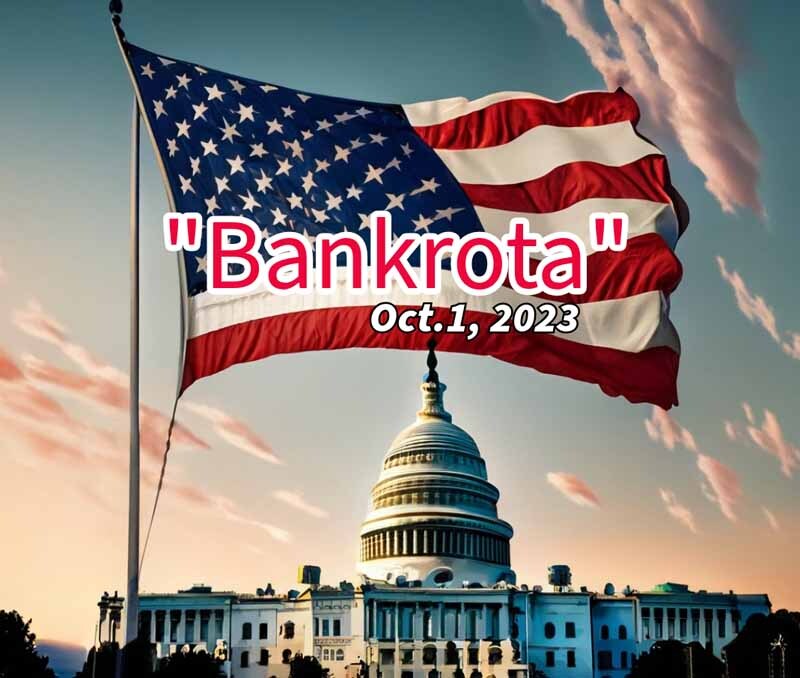 News Staff
News Staff![]() -
September 22, 2023 -
Business -
Gov shut-down
Oct 1 2023
-
3.1K views -
0 Comments -
0 Likes -
0 Reviews
-
September 22, 2023 -
Business -
Gov shut-down
Oct 1 2023
-
3.1K views -
0 Comments -
0 Likes -
0 Reviews

DLNews Biz:
Government funding expires at the end of the day on Saturday, September 30, when the clock strikes midnight, and it becomes October 1, which marks the start of the new fiscal year.
Without a deal by then, federal agencies and programs will have no approved annual funding from Congress and could be forced to shut down. That would mean national parks and monuments would close, passport applications would be delayed, and research at the Centers for Disease Control and other health-related agencies would need to be carried out.
But there are some exceptions: Social Security benefits continue because they are backed by laws that do not require annual approval, and the Treasury can still pay interest on U.S. debt even without an appropriations bill in effect. Most government employees would stay on the job, but the ones considered nonessential would be furloughed. That would include workers who keep the lights on at airports, verify Social Security and Medicare benefits, and perform other routine functions.
According to the White House Office of Management and Budget, a shutdown could lead to longer lines at some national parks and reduced access to services such as passport processing and food safety inspections by the Food and Drug Administration. The agency would also delay or stop hiring new employees and research grants.
If a shutdown occurs, congressional offices and other agencies funded through fees will continue to operate. But if there's a lapse in appropriations for the rest of the government, all operations will come to a standstill, and many staff members will be sent home, according to the Office of Management and Budget. This could disrupt the nation's economy, with some experts predicting that a weeks-long shutdown could reduce economic output by up to 0.2% in the quarter it lasts.
The last federal shutdown, which started in late December, lasted 35 days. It was the longest gap in funding in more than 40 years and the first to occur under a divided government, when Democrats controlled the Senate, and Republicans held the House of Representatives.
A shutdown has the potential to create a political mess, with politicians being blamed for putting people's lives at risk. It could also undermine the public's confidence in the ability of Congress to do the people's business. And Goldman Sachs estimates that a shutdown reduces GDP growth by about 0.2 percentage points each week.
Despite the dangers, a shutdown will likely last only briefly. In the past, when the public mind settles on one negotiating team as the cause of a lapse in funding, both sides have often sought a face-saving way out of the conflict.
But the path forward may be more difficult this time around. A prolonged shutdown will be expensive for the country, mainly if it affects travel and business activity, and could damage consumer confidence in the U.S. financial system. So far, neither side seems willing to back down in the face of a looming shutdown.

Desert Local News is an invitation-only, members-based publication built on fact-checked, non-biased journalism.
All articles are publicly visible and free to read, but participation is reserved for members—comments and discussion require an invitation to join.
We cover local, state, and world news with clarity and context, free from political agendas, outrage, or misinformation.